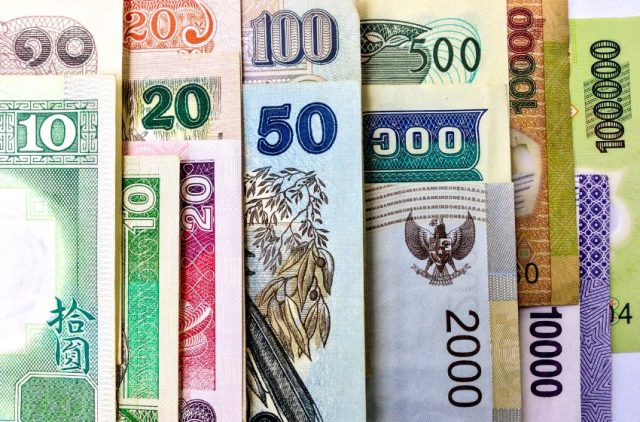Most Asian currencies have recently suffered big losses versus a stronger US dollar.
This adjustment comes as the Federal Reserve indicated that interest rate cuts may not happen as quickly as expected, citing lingering concerns about sustained inflation and geopolitical tensions.
Dollar’s Rally on Hawkish Fed Outlook
The dollar climbed to a 10-day high as traders modified their expectations following the Federal Reserve’s late-April meeting minutes.
These records, combined with comments from Fed officials, suggested a cautious approach to interest rate reductions due to persistent inflationary pressures.
This shift in sentiment resulted in a drop in betting on a September rate cut, with the CME Fedwatch tool indicating almost equal chances of keeping or lowering rates.
Impact on Asian Markets
The stronger dollar has hurt Asian currencies, with most falling sharply in the past week. The Japanese yen, Chinese yuan, South Korean won, Singapore dollar, and Australian dollar all fell.
The Fed’s stance on potentially higher U.S. interest rates for an extended term has put additional pressure on these currencies.
Japanese Yen and Chinese Yuan
The Japanese yen increased slightly versus the dollar, despite dismal consumer price index data indicating that the Bank of Japan has limited room to tighten. In contrast, the Chinese yuan’s losses were mitigated by a stronger midpoint fix imposed by the People’s Bank of China.
However, persistent US-China trade tensions and military operations near Taiwan have helped the yuan hit a six-month high against the dollar.
Regional Responses
Other regional currencies, such as the South Korean won and the Singapore dollar, also fell.
Economic indicators such as purchasing managers index (PMI) data showed uneven economic activity throughout Asia, with certain regions showing signs of cooling, especially in the service sector.
Geopolitical Concerns
Renewed tensions between the United States and China over trade, as well as military operations near Taiwan, have influenced market sentiment.
The United States has put higher tariffs on Chinese goods, prompting China to tighten restrictions on US businesses and strengthen its military posture near Taiwan.
Final Thoughts
The Asian currency market is currently navigating a difficult landscape defined by a strong US dollar, speculative Fed rate moves, and simmering geopolitical tensions.
Traders and investors should be attentive, as these variables are expected to continue impacting market dynamics in the foreseeable future.
The prospect of persistent high US interest rates offers a big challenge for risk-taking Asian markets, potentially leading to more currency volatility.
